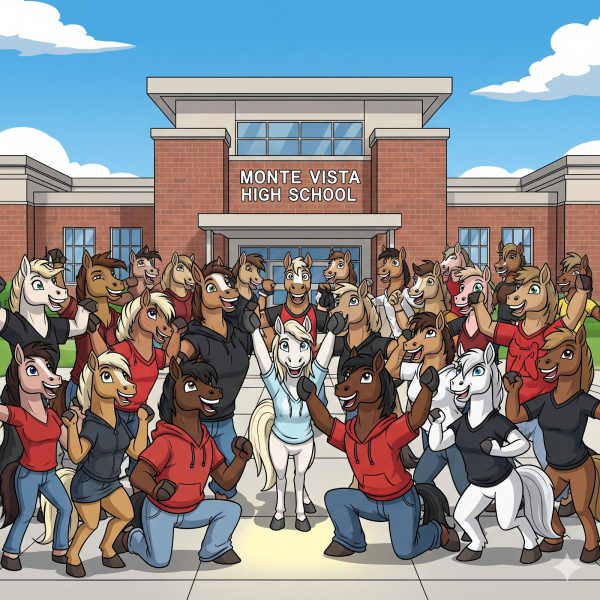Diversifying education or beating around the bush?

Florida’s Governor, Ron DeSantis, announcing the proposed legislation in support of Florida’s higher education reform. Gov. DeSantis banned the AP African American Studies course after a pilot curriculum was leaked.
Too often minority students across the country sit inside a classroom and feel as though their identity as not only a student, but a human being is being stripped from every novel, history textbook, or other text that is discussed inside the classroom. But the College Board has recently proposed a course to promote more diversity within the classroom: Advanced Placement African-American Studies. However, it is evident that this course is just another bandaid on a bullet wound.
The introduction of the new AP course is currently being piloted in 60 schools across the country. In recent months this course has been praised by scholars of race relations and ethnicity. But along with the praise also came serious criticism from right-wing politicians and commentators. Many of these people believed that the course needed a revision.
Among these Republican critics was Ron DeSantis, the governor of Florida. DeSantis outright blocked the course from all Florida schools as he claimed it was “inexplicably contrary to Florida law and significantly lacks educational value.”
With the immense amount of political backlash the College Board was facing, in less than a month it cut out a majority of the content that was intended to help classrooms capture more diverse perspectives through authentic teachings.
In the latest version of the curriculum, the history aspect of the course remains intact, but certain parts of the course such as discussions of present-day racism and intersectionality have either been made optional or omitted entirely. In addition to present-day racism, topics like the Black Lives Matter Movement and reparations for enslavement are now optional topics for a research project that was previously required in the pilot version of the course.
Even at Monte Vista, there have been numerous racist incidents from racial slurs to threats, which clearly illustrates that there is still a lack of education instilled in students. Along with this, there are also different approaches we can take in order to bring awareness to racial issues faced on campus and develop a much safer community for all.
“Misinformation can continue levels of implicit bias that we see amongst our student population,” said ethnic studies teacher Anastasia Chrzanowski.
On our campus serious issues are constantly being set aside which will only cause them to come up again in the future. Despite district efforts as well as school-wide programs like the ‘Mustang Moments’ to address racism and discrimination through videos, discussions and presentations, many students still don’t believe enough is being done despite Monte Vista’s good intentions.
With many voices, teachings, and projects being removed from the AP African-American Studies course, it leaves an open wound in the fight for diversity and inclusion in our present-day educational setting. The modifications made to the course have taken a step back from the progress that still needs to be made. The middle ground that was reached fails to address the fact that the only way we can appreciate black culture and teach it to students today is by discussing all of its facets, including the current racial topics present in our ever-evolving world.
“If we look at the [history textbooks] the percentage of the books that are dedicated to people of color, marginalized groups, the LGBTQ+ members is absolutely lacking,” Mrs. Chrzanowski said.
Many have also argued that the shift in the curriculum is a result of the heavy backlash the College Board faced due to the political discussions within the course. However, meeting in the ‘middle’ only provides an insufficient environment for students in general. Progress is difficult to be made within a new generation if we fail to understand what brought us this to the point we are at within society.
While the College Board has denied that the changes from the pilot curriculum to the final curriculum had been in the works for several months prior to DeSantis banning the course in the state of Florida, many argue that the College Board caved due to political pressure.
With the new curriculum and DeSantis’ banning of the course, it is apparent that other states might follow in Florida’s footsteps and do a disservice to students by also banning the course from their schools.
At the end of the day, the College Board should set its priorities straight and set its focus on what is best for students rather than trying to appease politicians. Without telling the full story of black history, many diverse perspectives remain unrecognized.
“There is always more we can do, especially knowing that our population is changing,” Mrs. Chrzanowski said. “We want our students to see themselves in what is learned in history and not just see themselves as the victim.”
It is important for us to learn many of the positive aspects of black culture by highlighting the achievements of influential black figures. Instituting an AP African-American Studies course takes a deep dive into the multiple perspectives within history through the struggles that simultaneously developed strength within the community of color.
“Also incorporating the more hopeful stories by looking at black innovators for instance as well as some of the more difficult [subjects],” Mrs. Chrzanowski said.
Emphasizing the influence on American culture and society that has been integrated into our lives today shows how we all come from a very diverse yet intertwined past no matter our background or ethnicity. It is this understanding mixed with the value of recognizing current racial discussions that will not only keep us moving forward, but also promote students to carry more decency by being aware of how their actions could be harmful.

Maraki Amare is a senior at Monte Vista. This will be her fourth year as a part of the Journalism Staff....

Maya Bhatt is a senior in her third year of Journalism, and she is thrilled to lead The Stampede as the...





